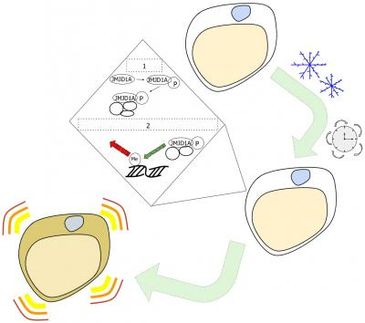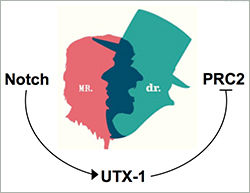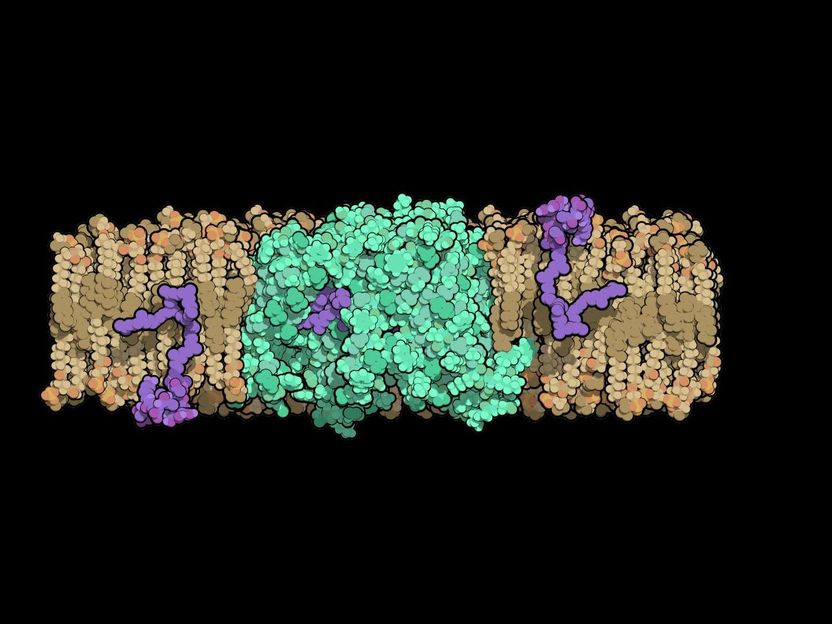New device packs power to analyze genes, proteins at patients’ bedside
University of Florida researchers have helped to develop a device that quickly identifies genes and proteins in body fluids — a technique that could make a vital difference to the trauma patients doctors treat. In a study published in Nature medicine, scientists describe how they developed and tested a new way to isolate cells from patient samples and analyze them to help predict outcomes after severe trauma. The technology, called a microfluidic cassette, allows precise analysis of very small volumes of fluids and can be used to study patients’ genes and proteins.
“What’s so powerful about this technique is that you can isolate any cell population quickly and efficiently at the bedside,” said Lyle L. Moldawer, Ph.D., a professor and vice chairman of research in the UF College of Medicine’s department of surgery. “In this case we isolated blood neutrophils, but we’ve also isolated T cells, mixed leukocytes, monocytes. Theoretically, you can isolate any cell population, under any disease, and rapidly get nucleic acids to produce a genomic signature.”
Knowing the genomic signature of a cell population can help doctors diagnose diseases and may allow them to predict how individual patients will respond to trauma and what treatments to order. The approach also could be used with patients who have cancer or other conditions.
Moldawer, a co-author of the paper who also directs the department’s Laboratory of Inflammation Biology and Surgical Science, said the team that developed and tested the cassette did so to isolate neutrophils, the first type of white blood cell on the scene of an infection, and to analyze the proteins they produce. These proteins indicate how genes that regulate the immune system respond to trauma, which may allow health-care providers to quickly identify patients more likely to develop serious complications.
The device was constructed by a team at Massachusetts General Hospital and sent to UF for initial testing, spearheaded by Elizabeth Warner, M.D., a surgical resident researcher and a co-author of the paper. Scientists from several other institutions, including Stanford University, the University of Rochester, the University of Washington, Pacific Northwest National Laboratory, Harvard University and Washington University in St. Louis also co-authored the paper.
The institutions are participants in the “Glue Grant” program set up by the National Institute of General Medical Sciences, and members of the “Inflammation and the Host Response to Injury” consortium.
Previous devices required 4 to 8 milliliters of fluids, the work of a highly skilled technician and several hours to complete analysis.
“We’re getting 100 nanograms of RNA with 0.15 (milliliters) of blood and we’re doing it all in 30 minutes,” said Kenneth Kotz, Ph.D., a research fellow in the department of surgery at Massachusetts General Hospital. “No one’s really ever been able to do this for neutrophils. No one’s been able to demonstrate the speed and the sample quality with these small blood volumes.”
Kotz built the device, which is laced with antibodies that capture the individual cells when a sample of fluid, such as blood or urine, is pumped through it. Nucleic acids or proteins from the cells are then extracted from the cassette, allowing researchers to analyze how specific genes are expressed. Testing showed the device yielded pure samples of neutrophils, and their gene expression pattern was consistent with results from tests performed in previous studies.
See the theme worlds for related content
Topic world Antibodies
Antibodies are specialized molecules of our immune system that can specifically recognize and neutralize pathogens or foreign substances. Antibody research in biotech and pharma has recognized this natural defense potential and is working intensively to make it therapeutically useful. From monoclonal antibodies used against cancer or autoimmune diseases to antibody-drug conjugates that specifically transport drugs to disease cells - the possibilities are enormous

Topic world Antibodies
Antibodies are specialized molecules of our immune system that can specifically recognize and neutralize pathogens or foreign substances. Antibody research in biotech and pharma has recognized this natural defense potential and is working intensively to make it therapeutically useful. From monoclonal antibodies used against cancer or autoimmune diseases to antibody-drug conjugates that specifically transport drugs to disease cells - the possibilities are enormous


























































